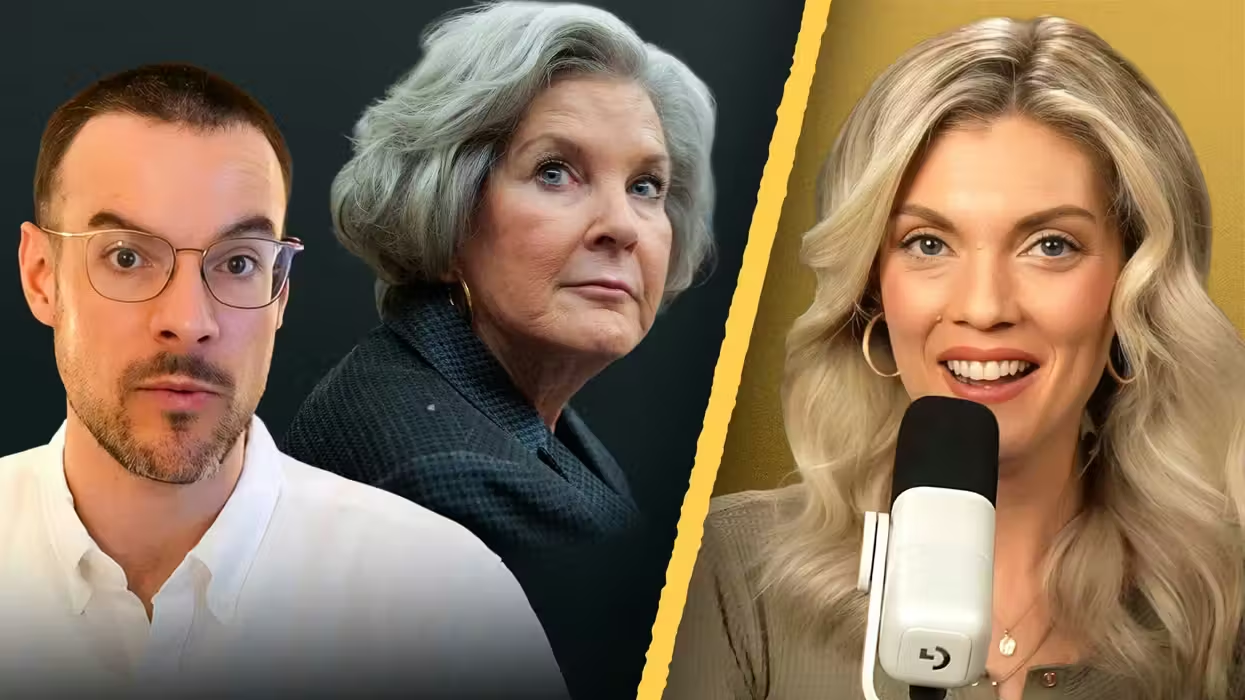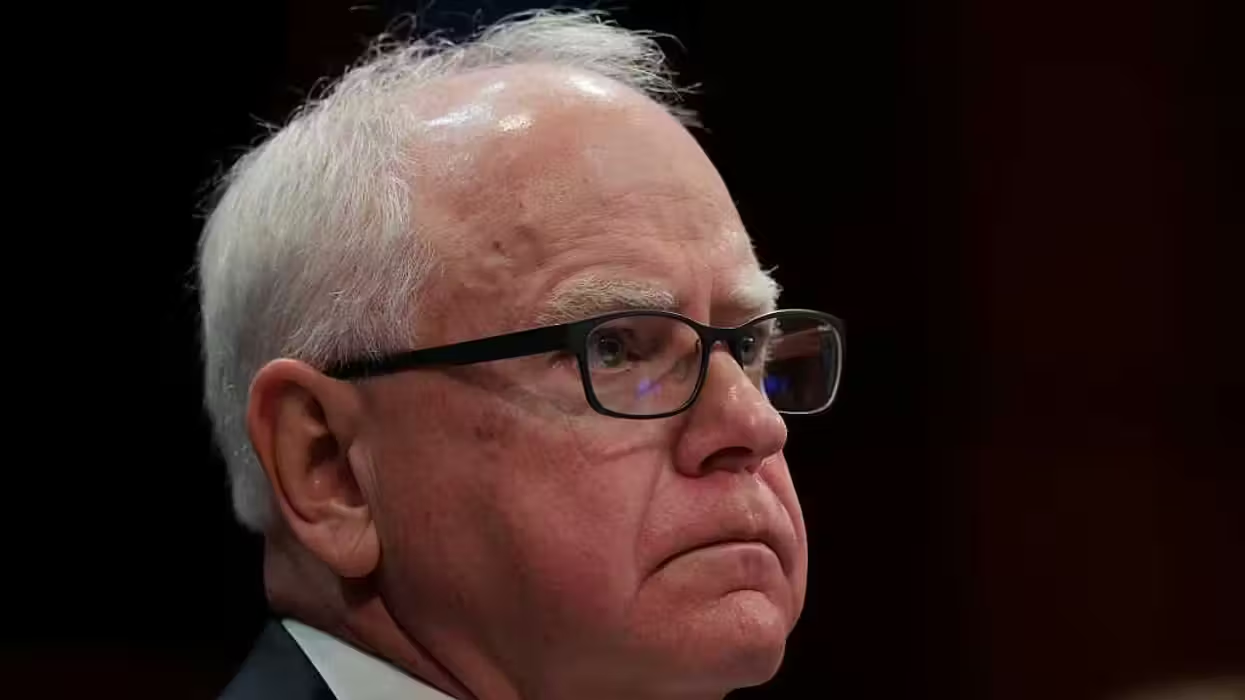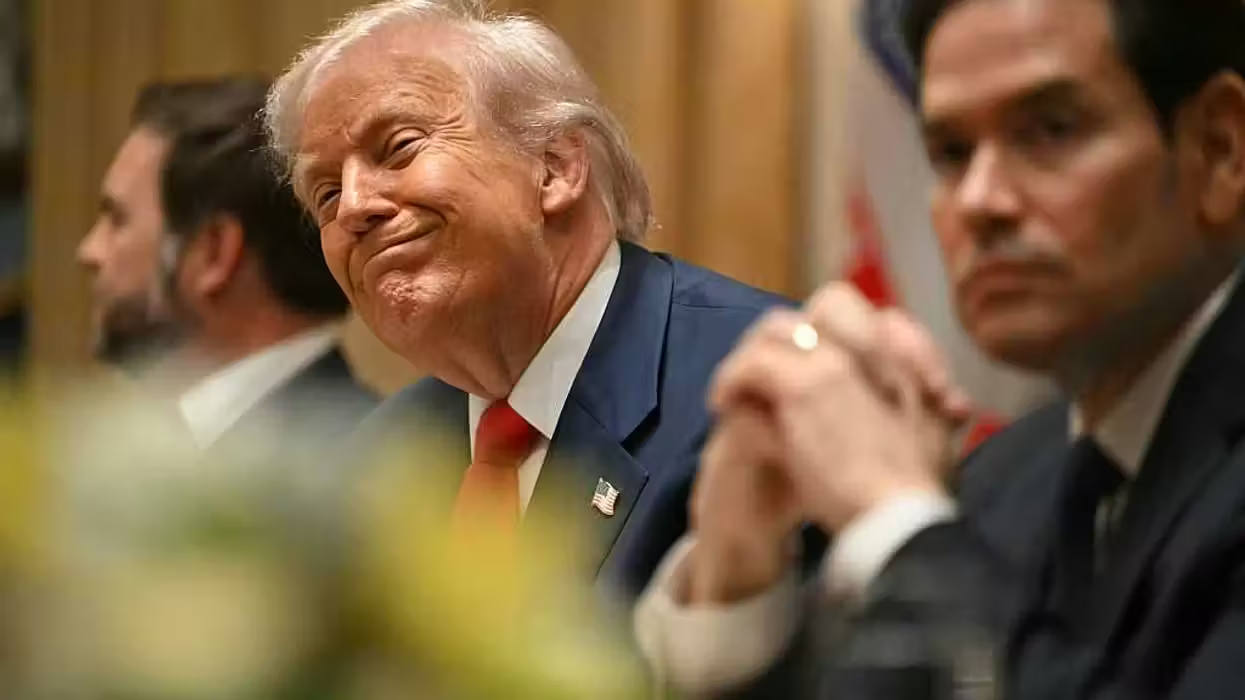
© 2025 Blaze Media LLC. All rights reserved.
Cop-killer apologist part of Obama’s push to ‘Trump-proof’ WH
December 20, 2016
In the latest episode of “Things President Trump needs to completely undo on day 1," President Obama is using his final days in office to harness the prevailing unconstitutional construction of “independent commissions" to “Trump-proof" the White House.
According to a Dec. 8 report by McClatchy, “Obama is trying to put the people and policies in place that he wants to outlast his presidency in the final weeks before Donald Trumptakes over. And his supporters want more, way more."
Obama has appointed 56 people to boards, commissions, and offices, and as McClatchy explains, the last-minute actions are not so easily overturned: “Sure [Trump] can change Obama's executive actions with a quick stroke of the pen, but rule changes require justification following a Reagan-era court case mandating that regulation changes aren't done on a whim. Many of the appointments could outlast Obama and Trump because the terms are five to seven years and require Senate confirmation."
While many of these positions are small in scope, several of them are very impactful — like two of the most recent, most radical appointments to the United States Commission on Civil Rights.
Last Thursday, Obama appointed former NAACP attorney Debo Adegbile, who previously represented cop-killer Mumia Abu-Jamal in an appeals case, to a six-year post on the USCCR. In the same batch of appointments, Obama also appointed Catherine Lhamon, an assistant secretary at the Department of Education whose office helped spearhead the Obama administration's overreaching transgender guidelines on bathrooms back in the spring.
As Ilya Shapiro and Thomas Berry note in National Review, Obama once tried to appoint Adegbile to head up the Department of Justice's Civil Rights Division, but was rejected in the Senate.
The Free Beacon reported this week:
John McNesby, president of the Fraternal Order of Police's chapter in Philadelphia, lashed out at the Obama administration over the appointment, calling it “Obama's goodbye present to police across the nation."
“That's just the old kick in the teeth to the cops," McNesby said during an appearance on the Dom Giordano Show on Friday morning. “I guess it's Obama's goodbye present to police across the nation."
As we noted earlier this week, the entire concept of independent commissions wielding executive, judicial, and legislative power — with its leaders not subject to presidential removal and Senate confirmation — is unconstitutional. The Constitution only provides for one type of executive function, and only one process for appointing its high officers. A president appointing members to executive positions to outlast his White House successor is the ultimate violation of the separation of powers.
The U.S. Commission on Civil Rights is an independent government agency created during the Eisenhower administration in 1957. It is given a mix of legislative, judicial, and executive power to carry out its mission of “the continuous appraisal of civil rights, and the efficiency of machinery with which we hope to improve that status," per the recommendation of an ad hoc committee on the subject 10 years earlier. In order to carry out this mission, the body has both the power of subpoena and investigation, which are properly the roles of the Justice Department.
If you think the language itself sounds like pie-in-the-sky progressivism, wait until you understand how it's structured. Per its last reauthorization in 1994, the USCCR is composed of eight commissioners who serve staggered six-year terms. The appointments — as with several other such commissions — are split between the president and congressional leadership.
The commission is charged with three primary duties. It shall:
- “[I]nvestigate allegations in writing under oath or affirmation relating to deprivations […] because of color, race, religion, sex, age, disability, or national origin," or as the result of fraud.
- “Study information, appraise laws and policies, serve as a clearinghouse of information, and prepare public service announcements and ad campaigns regarding discrimination or denials of equal protection of the laws under the Constitution of the United States because of color, race, religion, sex, age, disability, or national origin, or in the administration of justice."
- “The Commission shall submit to the President and Congress at least one report annually that monitors Federal civil rights enforcement efforts in the United States. “The Commission shall submit such other reports to the President and the Congress as the Commission, the Congress, or the President shall deem appropriate."
So, what does all that look like in practice? In just the past few months alone, these powers have been used to generate a commission report that explicitly called religious liberty claims “code words" for “Christian supremacy," every kind of “-phobia," and the freedom to discriminate against minorities. The powers also justified the commission's finger-wagging at local law enforcement for its handling of the grossly misrepresentedStanding Rock oil pipeline protesters in North Dakota, equating them with civil rights protests in the “Jim Crow South."
And the courts have green-lighted this sort of unaccountable super-administration in the jurisprudence surrounding these independent bodies. That means officials like Debo Adegbile and Catherine Lhamon are not considered subject to the same scrutiny as executive appointees who would be otherwise replaced with officials from the incoming executive, which is constitutionally charged to “take care that the laws be faithfully executed."
In 1789, James Madison best explained the power of the president as follows: “[I]f any power whatsoever is in its nature Executive, it is the power of appointing, overseeing, and controlling those who execute the laws."
This is the exact sort of power that Donald Trump will inherit — bestowed upon him by a vote of the American people. And it's the exact power he should seek to wield, unencumbered by an unconstitutional fourth branch. USCCR appointees like Adegbile and Lhamon are Obama's last desperate attempt to prolong his rejected, precarious “legacy" into the next administration. Trump should take the mandate given to him by the American people, take back the prerogatives of his own office from Congress and the courts, and summarily fire Obama's Trump-proofing pawns.
Some of his advisors will likely contend that it's not worth picking a fight over with the courts. But we should never preemptively surrender a legitimate executive power, especially when the case law against it is flimsy. In the landmark case of Myers v. U.S. (1926), Chief Justice William Howard Taft made it very clear that any agency within the executive branch must be — per the U.S. Constitution — controlled by the president.
Had liberals been credited with this decision, the legal profession would regard it as settled law. Beginning in Humphrey's Executor v. U.S. (1935), however, the courts began carving out exceptions to executive power within commissions that are clearly not a part of the legislature or judiciary (yet wield quasi-legislative and judicial powers).
But those cases have been uneven, and in 1988, Justice Antonin Scalia made it clear in his epic Morrison v. Olson dissent, concerning the constitutionality of the independent counsel law, that the court should revisit this issue through the lens of true originalism. “[T]he President's constitutionally assigned duties include complete control over investigation and prosecution of violations of the law, and that the inexorable command of Article II is clear and definite: the executive power must be vested in the President of the United States," wrote Scalia.
It's time for a president to finally challenge the conventional wisdom regarding the governing class. An agency can only be within the executive branch if the president controls it. If the president doesn't control it, then it's unconstitutional. What better battleground to choose for this war on unelected commissioners than a man serving on a civil rights post who fought for the acquittal of a cop killer?
Want to leave a tip?
We answer to you. Help keep our content free of advertisers and big tech censorship by leaving a tip today.
Want to join the conversation?
Already a subscriber?
Blaze Podcast Host
Daniel Horowitz is the host of “Conservative Review with Daniel Horowitz” and a senior editor for Blaze News.
RMConservative
Daniel Horowitz
Blaze Podcast Host
Daniel Horowitz is the host of “Conservative Review with Daniel Horowitz” and a senior editor for Blaze News.
@RMConservative →more stories
Sign up for the Blaze newsletter
By signing up, you agree to our Privacy Policy and Terms of Use, and agree to receive content that may sometimes include advertisements. You may opt out at any time.
Related Content
© 2025 Blaze Media LLC. All rights reserved.
Get the stories that matter most delivered directly to your inbox.
By signing up, you agree to our Privacy Policy and Terms of Use, and agree to receive content that may sometimes include advertisements. You may opt out at any time.







